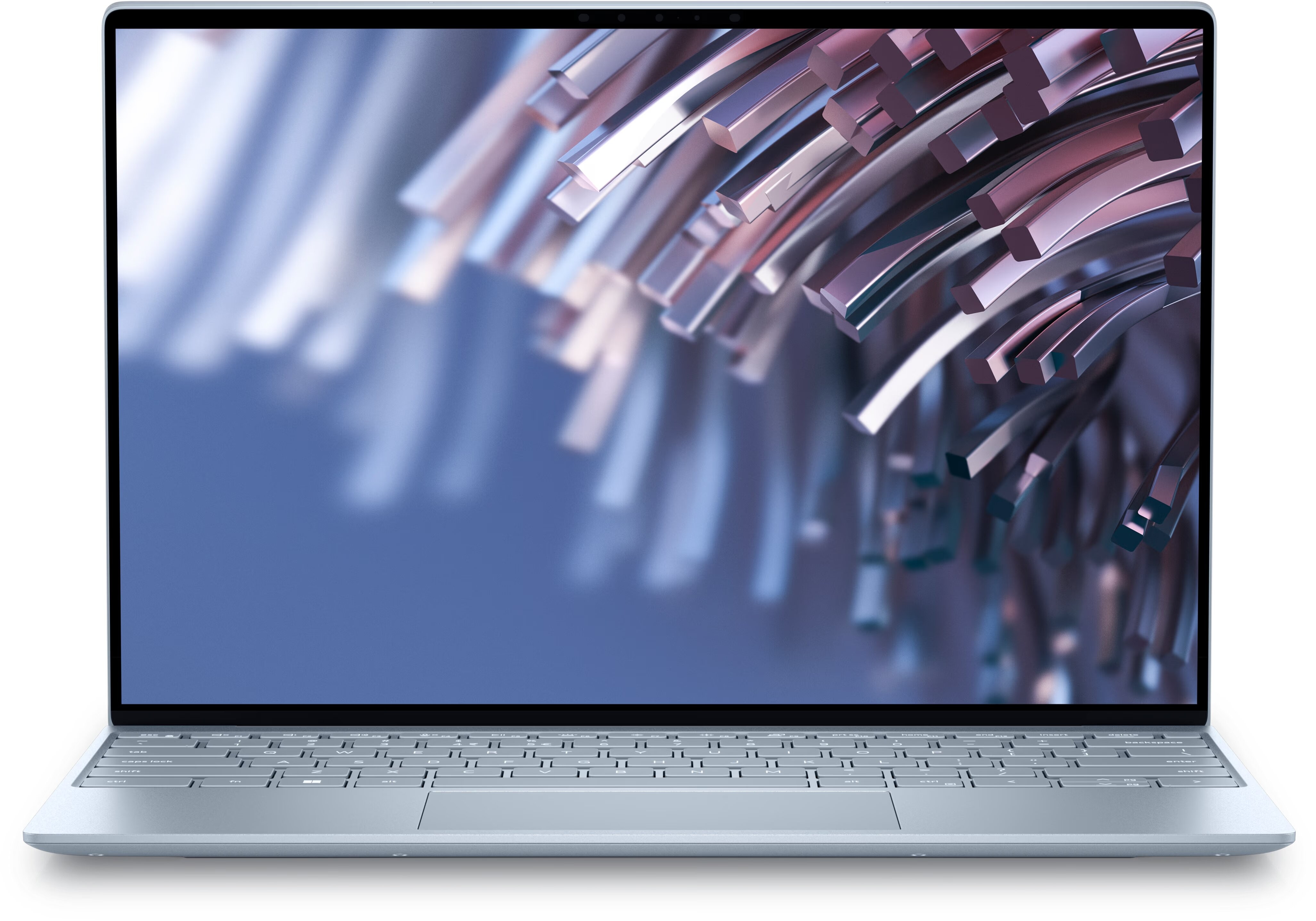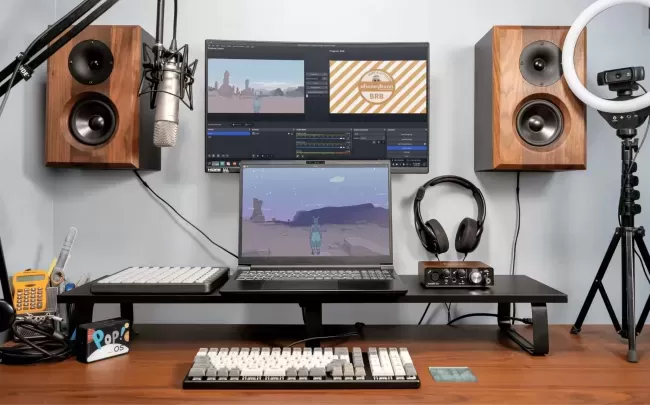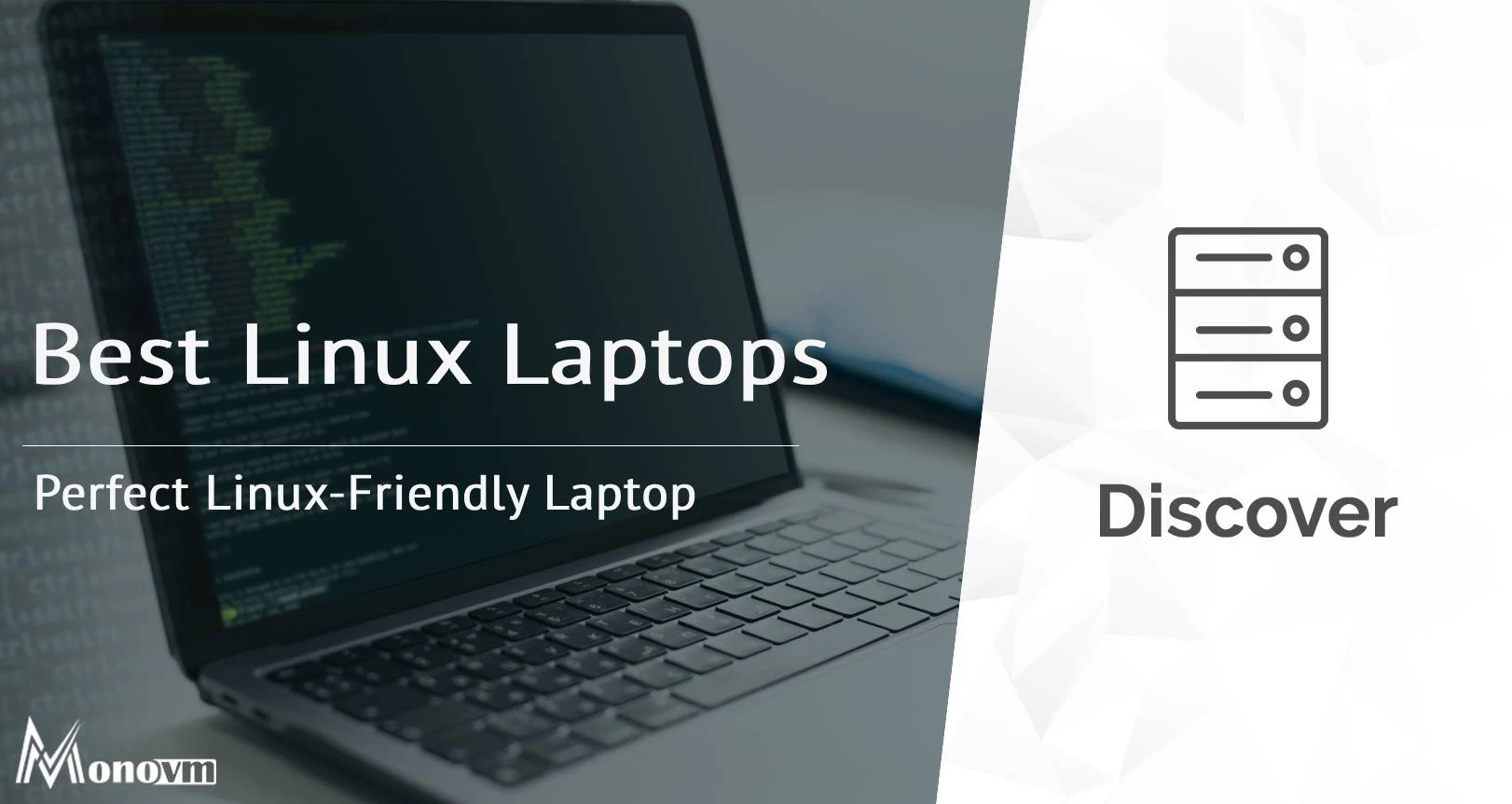List of content you will read in this article:
In recent years, the use of Linux on laptops has been steadily growing, and for good reason. Linux, an open-source operating system, offers a range of benefits that make it an attractive choice for laptop users. In this article, we will explore the world of the best Linux laptops, as well as delve into the versatility and customization options they provide.
Top Picks for Linux Laptops
Best for the Minimalist: Dell XPS 13
Specifications:
- CPU: Intel Core i5 or i7
- RAM: 8GB or 16GB
- Storage: 256GB SSD or higher
- Display: 13.4-inch FHD+ or 4K Ultra HD
- Graphics: Intel Iris Xe Graphics
Pros:
- Premium build quality with a sleek, minimalist design.
- Excellent display options with virtually borderless InfinityEdge screens.
- Strong Linux compatibility and support.
Cons:
- Slightly higher price point.
- Limited upgrade options due to the slim design.
The Dell XPS 13 boasts a sleek and minimalist design with its virtually borderless InfinityEdge display. Its slim profile and lightweight build make it perfect for those who prefer a clean and uncluttered laptop experience. The latest Dell XPS 13 model, Dell XPS 13 9315, is available through Dell's official website and authorized retailers.

Best for the Maximalist: System76 Oryx Pro
Specifications:
- CPU: Intel Core i7 or AMD Ryzen 9
- RAM: Up to 64GB
- Storage: Up to 8TB NVMe SSD
- Display: 15.6-inch or 17.3-inch FHD or 4K
- Graphics: NVIDIA GeForce RTX 30 series
Pros:
- Exceptional gaming and overall performance with high-end hardware.
- Customizable configurations to meet specific user needs.
- Pre-installed Linux for out-of-the-box compatibility.
- Robust build quality.
Cons:
- Bulkier and heavier than ultrabooks.
- Shorter battery life compared to some other Linux-friendly laptops.
The System76 Oryx Pro offers a maximalist approach with high-end hardware and customization options. Linux enthusiasts will appreciate its open-source compatibility and extensive configuration possibilities. The latest System76 Oryx Pro models can be purchased directly from System76's official website.

Best Repairable: Lenovo ThinkPad X1 Carbon
Specifications:
- CPU: Intel Core i5 or i7
- RAM: 8GB or 16GB
- Storage: 256GB SSD or higher
- Display: 14-inch FHD or 4K
- Graphics: Intel Iris Xe Graphics
Pros:
- Legendary ThinkPad durability and reliability.
- Modular design for easy repair and upgrades.
- Widespread Linux laptop compatibility.
- Comfortable keyboard for extended typing sessions.
Cons:
- Relatively high initial cost.
- Limited gaming performance due to integrated graphics.
Lenovo ThinkPads are known for their excellent build quality and repairability. The X1 Carbon, in particular, is designed with modular components, making it easier to replace or upgrade parts like RAM and storage. The latest Lenovo ThinkPad X1 Carbon model, X1 Extreme Gen 5, is available through Lenovo's official website and authorized retailers.
Best for Hackers: Pinebook Pro
Specifications:
- CPU: Rockchip RK3399 Hexa-Core
- RAM: 4GB LPDDR4
- Storage: 64GB eMMC
- Display: 14-inch 1080p IPS
- Graphics: ARM Mali-T860 MP4
Pros:
- Extremely budget-friendly, perfect for experimentation.
- Open-source hardware and software.
- Ideal for Linux enthusiasts and tinkering.
- Lightweight and portable for on-the-go projects.
Cons:
- Modest performance limits heavy multitasking.
- Limited software support compared to mainstream laptops.
The Pinebook Pro is an affordable, open-source laptop perfect for hackers and tinkerers. One of the best Linux laptops out there, its hardware design allows users to dive deep into customization and experimentation. It's one of the best Linux laptops for those who want to explore Linux at its core, customize their software stack, and engage in various hacking projects without breaking the bank. PineTab2, the latest Pinebook Pro model, can be purchased from the Pine64 website.
Best for Sysadmins: HP Spectre x360
Specifications:
- CPU: Intel Core i5 or i7
- RAM: 8GB or 16GB
- Storage: 256GB SSD or higher
- Display: 13.3-inch or 15.6-inch FHD or 4K OLED
- Graphics: Intel Iris Xe Graphics
Pros:
- Versatile 2-in-1 design for flexible use cases.
- Solid Linux compatibility for system administration tasks.
- Premium build quality and display options.
- Good performance for productivity and multitasking.
Cons:
- Higher price point compared to some alternatives.
- Limited upgrade options due to the compact form factor.
The HP Linux laptop Spectre x360 combines versatility and performance, making it an excellent choice for system administrators. Its 2-in-1 design allows for flexibility in various work scenarios, and it offers robust Linux compatibility, making it a reliable tool for managing servers and networks on the go. The latest HP Spectre x360 model, Spectre x360 16, can be found in various retail and online stores.
If Your Budget Is Tight: Pinebook Pro
For those on a tight budget, the Pinebook Pro offers an affordable and cheap Linux laptop option. While it may not have high-end specs, it provides a functional and open-source computing experience without breaking the bank. It's perfect for students, hobbyists, or anyone looking for an inexpensive way to explore the Linux ecosystem.
Diving into the Details
Let's take a closer look at a few of our best Linux laptops to provide you with more in-depth information.
1. Dell XPS 13 (Ultrabook)
Performance: The Dell XPS 13 is a powerhouse in a compact form factor. It's equipped with the latest Intel Core i5 or i7 processors and offers speedy performance for everyday tasks. Multitasking is a breeze, thanks to the 8GB or 16GB of RAM, and the fast SSD ensures quick boot times and application loading.
Build Quality: Dell has excelled in build quality with the XPS 13. Its aluminum chassis feels premium, and the edge-to-edge InfinityEdge display not only looks stunning but also reduces the laptop's overall footprint. The carbon fiber palm rest is comfortable for long typing sessions.
User Experience: The XPS 13 provides an exceptional user experience. The 13.4-inch FHD+ or 4K Ultra HD display offers vibrant colors and sharp details, making it great for productivity and entertainment. The keyboard is comfortable for typing, and the touchpad is precise. Linux compatibility is excellent, with most distributions working seamlessly.
Specifications:
- CPU: Intel Core i5 or i7
- RAM: 8GB or 16GB
- Storage: 256GB SSD or higher
- Display: 13.4-inch FHD+ or 4K Ultra HD
- Graphics: Intel Iris Xe Graphics
2. System76 Oryx Pro (Gaming Laptop)
Performance: The System76 Oryx Pro is a gaming beast. With options for Intel Core i7 or AMD Ryzen 9 CPUs and up to 64GB of RAM, it can handle demanding games and multitasking with ease. The NVIDIA GeForce RTX 30 series graphics card delivers exceptional gaming performance.
Build Quality: While not as slim as ultrabooks, the Oryx Pro has a solid build with a focus on performance. It's robust and well-ventilated, ensuring optimal cooling during intensive gaming sessions. The keyboard has customizable RGB lighting for a gaming aesthetic.
User Experience: Gamers will love the 15.6-inch or 17.3-inch FHD or 4K display options. The keyboard is responsive, and the large touchpad is precise. Linux comes pre-installed, and the laptop is designed with Linux users in mind, so compatibility is excellent.
Specifications:
- CPU: Intel Core i7 or AMD Ryzen 9
- RAM: Up to 64GB
- Storage: Up to 8TB NVMe SSD
- Display: 15.6-inch or 17.3-inch FHD or 4K
- Graphics: NVIDIA GeForce RTX 30 series
3. Lenovo ThinkPad X1 Carbon (Business)
Performance: The ThinkPad X1 Carbon is a business-oriented laptop that doesn't compromise on performance. It's powered by Intel Core i5 or i7 processors with up to 16GB of RAM. While not a gaming laptop, it handles office tasks and multitasking with ease.
Build Quality: Lenovo's ThinkPad series is renowned for its build quality, and the X1 Carbon is no exception. It's built with durability in mind, featuring a carbon fiber chassis that's both lightweight and sturdy. The spill-resistant keyboard and TrackPoint offer added convenience.
User Experience: The 14-inch FHD or 4K display provides sharp visuals, and the keyboard is a joy to type on. Linux support is strong, and many users appreciate the hassle-free compatibility. It's one of the best Linux laptops for developers, professionals and sysadmins who need a reliable workhorse.
Specifications:
- CPU: Intel Core i5 or i7
- RAM: 8GB or 16GB
- Storage: 256GB SSD or higher
- Display: 14-inch FHD or 4K
- Graphics: Intel Iris Xe Graphics
User Experiences and Testimonials
Don't just take our word for it—here are some testimonials and Linux laptop reviews from Linux enthusiasts who have successfully used these laptops:
- “The HP Envy x360 13 has been a reliable companion for my development work. Its performance and sleek design make it a joy to use.” – Sarah, Developer
- “I chose the System76 Oryx Pro for its powerful specs and Linux compatibility. It handles everything I throw at it with ease.” – Mark, Gamer
- “The repairability of the Framework Laptop impressed me. It's great to know I can easily upgrade components as needed.” – Emily, Sustainability Advocate
Benefits of Running Linux on Laptops
- Stability and Reliability: Linux is renowned for its stability and reliability. It is designed to run efficiently even on older hardware, which can extend the lifespan of your laptop. Unlike some other operating systems, Linux is less prone to crashes and performance issues, making it an ideal choice for those who rely on their laptops for work or personal use.
- Security: Security is a top priority for many laptop users, and Linux has a strong reputation in this regard. The open-source nature of Linux means that its code is constantly scrutinized by a global community of developers, making it less susceptible to malware and security vulnerabilities.
- Cost Savings: Linux is free to use, which can lead to significant cost savings, especially when compared to purchasing licenses for proprietary operating systems. This is an attractive proposition for individuals, students, and businesses looking to minimize their expenses while still enjoying a high-quality computing experience.
Versatility and Customization Options of Best Linux laptops
- Diverse Distributions: Linux offers a vast array of distributions, each with its own set of features and characteristics. Whether you prefer a user-friendly experience like Ubuntu, a highly customizable system like Arch Linux, or a specialized distribution for specific purposes, there is a Linux distribution to suit your needs.
- Customization: One of Linux's most appealing aspects is its unparalleled level of customization. Users can personalize their desktop environments, choose from numerous themes and icons, and even modify the core components of the operating system.
- Open-Source Community: Linux is supported by a passionate and active open-source community. This community-driven development model means that users have access to a wealth of software and resources.
Considerations When Choosing a Best Linux Laptop
When deciding between the best Linux laptops, several key considerations can help you make an informed decision.
1. Hardware Compatibility and Driver Support
One of the primary considerations when choosing a Linux laptop is hardware compatibility. While Linux supports a wide range of hardware, it's essential to check if the specific laptop you're interested in is well-supported.
2. Processor, RAM, and Storage
Consider your performance needs. If you're a developer working on resource-intensive projects or a gamer, you'll want a laptop with a powerful CPU and ample RAM. Solid-state drives (SSDs) are also recommended for speed and reliability.
3. Battery Life and Portability
If you need a laptop for on-the-go work or study, battery life and portability are crucial. Look for laptops with long battery life and a lightweight design.
4. Graphics Options
Depending on your use case, you may need a laptop with dedicated graphics for tasks like gaming or graphic design. Integrated graphics may suffice for everyday use and programming.
5. Price Range and Budget
The best Linux laptops come in various price ranges, from budget-friendly options to high-end models. Determine your budget and stick to it while considering your specific needs.
Conclusion: Finding Your Perfect Linux Laptop
In the world of Linux laptops, there's a perfect fit for every user. Whether you're a minimalist seeking style and performance or a maximalist demanding top-tier specs, the Linux laptop market has you covered. Consider your specific needs, budget, and preferences to choose the ideal laptop for your Linux journey.
In your quest for the best Linux laptops, you'll find a world of possibilities. Choose one from our Linux laptop recommendations that aligns with your goals, and you'll be on your way to a seamless and customizable computing experience. Whether you're a developer, a student, or a tech enthusiast, the best Linux laptops offer endless possibilities for exploration and innovation.

Hello, everyone, my name is Lisa. I'm a passionate electrical engineering student with a keen interest in technology. I'm fascinated by the intersection of engineering principles and technological advancements, and I'm eager to contribute to the field by applying my knowledge and skills to solve real-world problems.